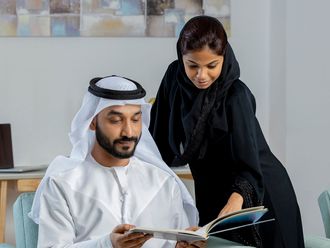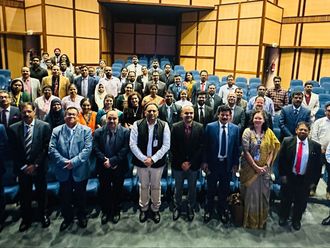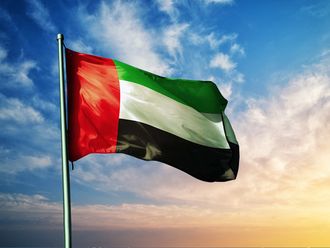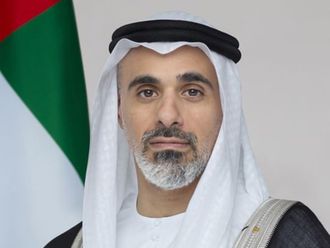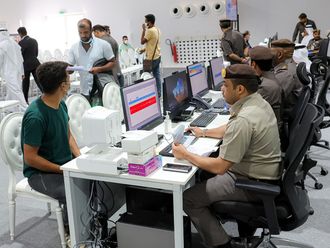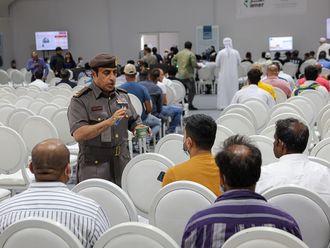In a lengthy interview with the New York Times early this month, Syrian president Bashar Al Assad spoke on a wide range of issues, including US-Syrian relations, the peace process, Iraq, the "war on terrorism" and his reform project in Syria.
For many Syrians who aspire for a more representative and transparent government, this final point was probably the most important, but here also Al Assad was particularly ambiguous.
In response to criticisms about the slow pace of reform, Al Assad rejected the argument of old guards versus new. Instead, he put the blame on what he called "Syrian mentality" and the lack of trained cadre to carry out the necessary reform.
"There are some obstacles related to the mentality… You have people who are old and people who are young who have this mentality", Assad argued. As for the lack of a skilled bureaucracy, he said: "(the) major problem that I am facing as somebody who is responsible in this country is the cadre; the efficient, trained people to do the reform particularly the administrative reform".
If one is to agree with this explanation, there are then some questions that need to be answered. First and foremost, isn't this the same mentality the regime has fostered so vigorously for the past four decades?
Lack of trained cadre
And isn't the lack of a trained cadre the result of policies of exclusion and alienation which forced thousands of qualified Syrians to flee the country?
Yet, if we skip these questions, which are as relevant and important as anyone might think, and pay close attention to the situation in Syria, we find that Al Assad's problem has, in fact, nothing to do with "mentality", which is in this context very much a reflection of the problem of the "Arab mind" in Orientalist literature, nor it has with the lack of efficient bureaucracy to proceed with the desired reform.
It is, rather, the legacy of a distorted one party system, which is dominated by shadowy institutions and extrajudicial procedures.
Like many other Third World countries, Syria has two power structures: the official, powerless one and the real one. In the official one there are all the institutions of a modern state, such as the cabinet, parliament, the ruling party and the bureaucracy. In the real one there is a small number of top brass making all key decisions behind closed doors.
The influence of these people, who are often corrupt and accountable to no-one, is a huge problem for Bashar and his reform project. By the same token, it is these same people who engineered Bashar's rise to power.
Should he begin an anti-corruption drive to remove them, the very foundations of his regime might crumble. To elaborate on this, when Al Assad succeeded his father in July 2000, he found the economy and the political system mired with problems and decadence. He faced a classic dilemma. On the one hand, he needed to liberalise the economy and reform the political system in order to survive.
Risks and gains in mind
On the other hand, he wanted to keep the pillars of his regime intact. Hence, he had three options with risks and gains in mind. The first was to initiate a profound transformation, addressing the economic and political problems of the country in a true and innovative manner. The gains of this option would be winning a badly needed legitimacy and rally the Syrian people around him.
The risks would be antagonising the barons of the old regime who might strike back against anyone daring to strip them of their privileges. The second option was to make some cosmetic changes and maintain the status quo.
The risks here would be losing the support of the people while keeping the barons happy.
The third option was a variation between the two, that is, to introduce some reforms on the economic front while keeping the political system closed.
Unfortunately, Al Assad chose the third option and this has cost him dearly. People started to question his commitment to reform and his ability to deliver the promises he made in his inaugural speech.
Change in Syria is inevitable and Al Assad knows this very well. He also knows that in no circumstances Syrians would prefer a change forced from outside.
What he needs to know, however, is that his power rests with the people who would certainly come to his support in case of a conflict with the old guards. Yet, the support of the people should not be taken for granted; some steps are needed in order to regain their trust.
These steps include establishing the rule of law, end the state of emergency, in effect since 1963, release all political prisoners, grant political freedom, including the freedom of expression and the press and allow exiled Syrians to go back. This would change the "mentality", address any shortage in the trained cadre and strengthen Al Assad's hand vis-à-vis the old guards.
Dr. Marwan Al Kabalan is a scholar in international relations based in Manchester, UK. He can be contacted at: makabalan@gulfnews.com
Dr. Marwan Al Kabalan: Bashar's reform project: Real or cosmetic?
In a lengthy interview with the New York Times early this month, Syrian president Bashar Al Assad spoke on a wide range of issues, including US-Syrian relations, the peace process, Iraq, the "war on terrorism" and his reform project in Syria.



